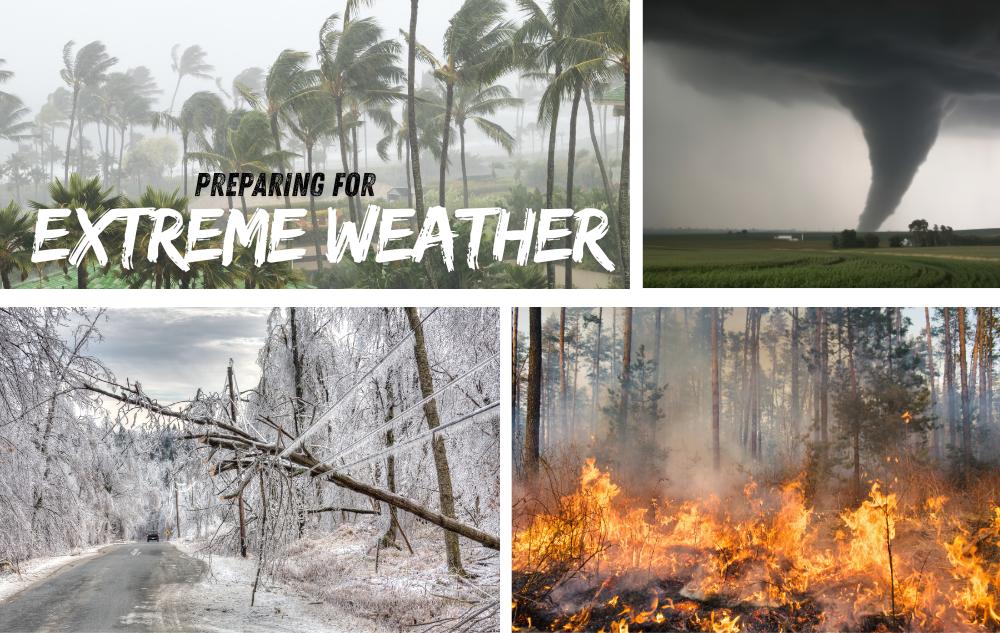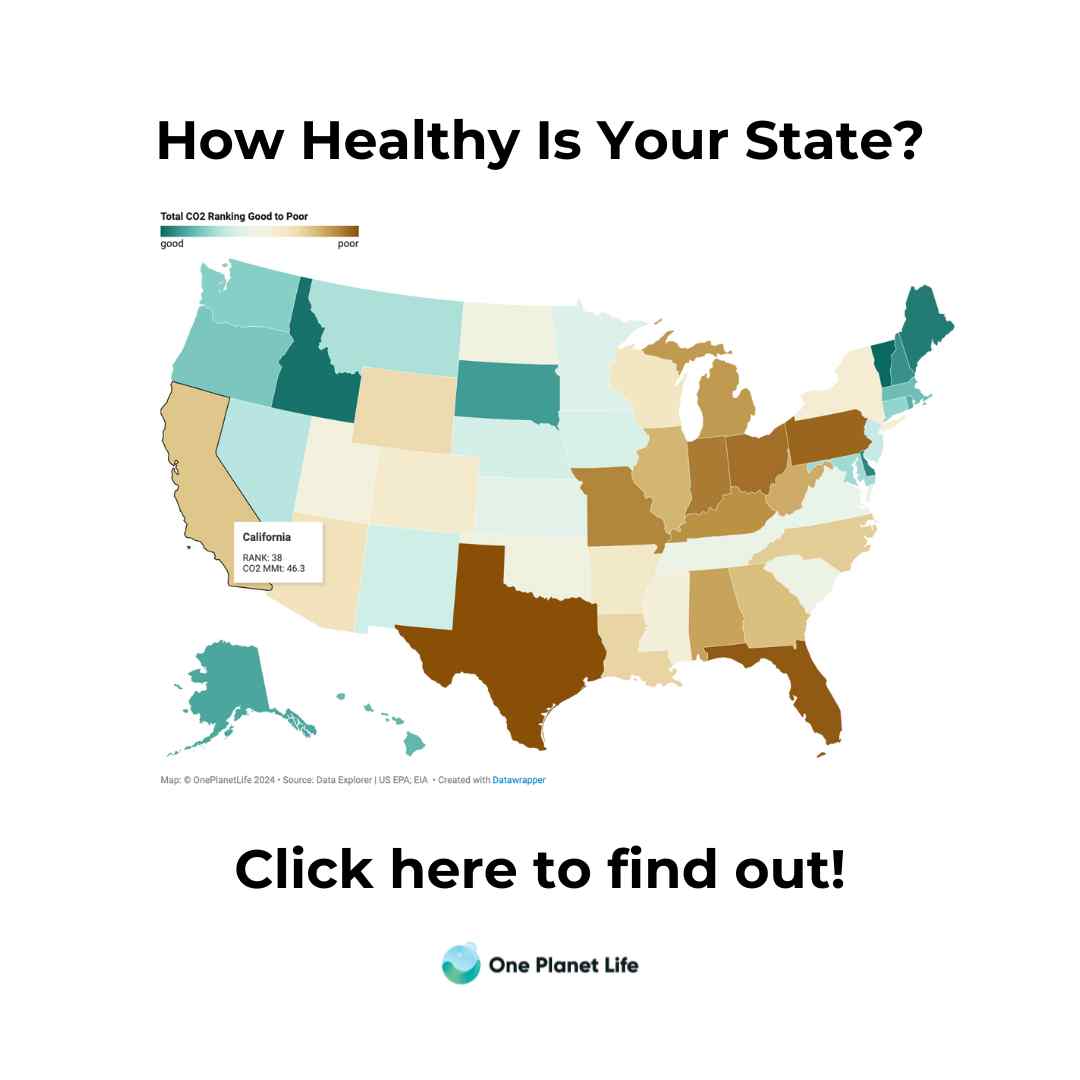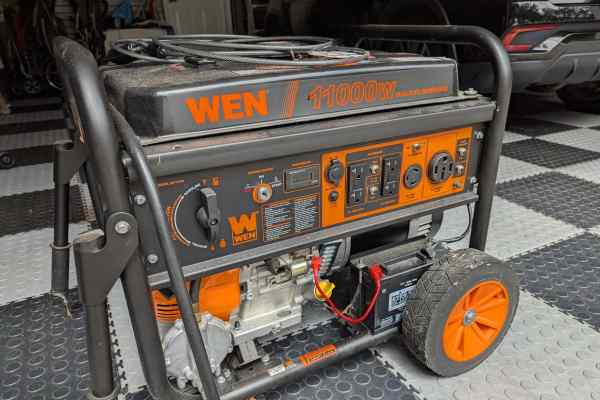We live in an age where climate change is reshaping the world around us. Extreme weather events are becoming more frequent, and they’re hitting closer to home. Depending on where you live, you might face wildfires, hurricanes, droughts, floods, or even severe storms. It can feel overwhelming, but preparing for these changes doesn’t have to be about fear. It’s about taking control of what you can to protect yourself, your family, and your community.
Be prepared for whatever the weather throws at you
Being ready isn’t just for “doomsday preppers”—it’s a smart, practical way to stay ahead of the unexpected. At One Planet Life, we understand the importance of preparation because we’ve experienced the impact of climate change firsthand. Our OPL team knows that preparing for these shifts is crucial for both peace of mind and safety.
We’ve gathered stories from our team members to share how they’re adapting to these environmental changes. Their insights offer valuable tips and real-world examples of what preparedness looks like in everyday life. You’ll find that being prepared is not about living in fear—it’s about empowerment and resilience.
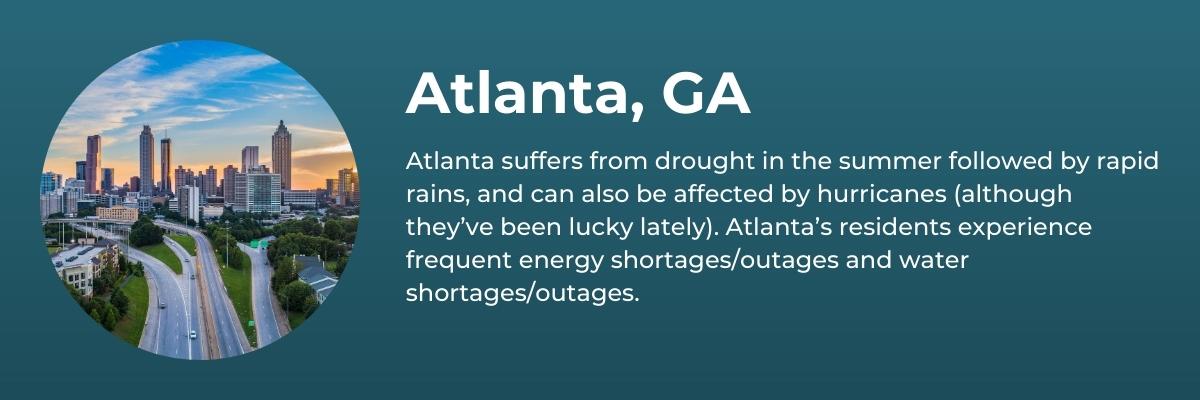
“While big weather events are scary, I am more concerned with food quality and agriculture impact, how we are doing on our energy transformation to renewables, lower air quality, biodiversity, and plastic. These are long-term concerns that impact all of us and are hard to change.”
Lorie Buckingham is concerned by all of the climate change events that are occurring with greater frequency. She uses several tools to help her prepare for events. See her emergency list to the right, then read our blog for a list of recommended products Lorie and others rely on.
Preparing for events makes Lorie feel safer. “At this point, it seems that not preparing is not a good strategy. In any situation that is not common, it is best to think it out ahead of time and be prepared. Of course, it may not go according to plan, but it is a great starting point.”
“My biggest climate change concern is energy shortages and outages. We’re so dependent on the internet that these outages are catastrophic.”
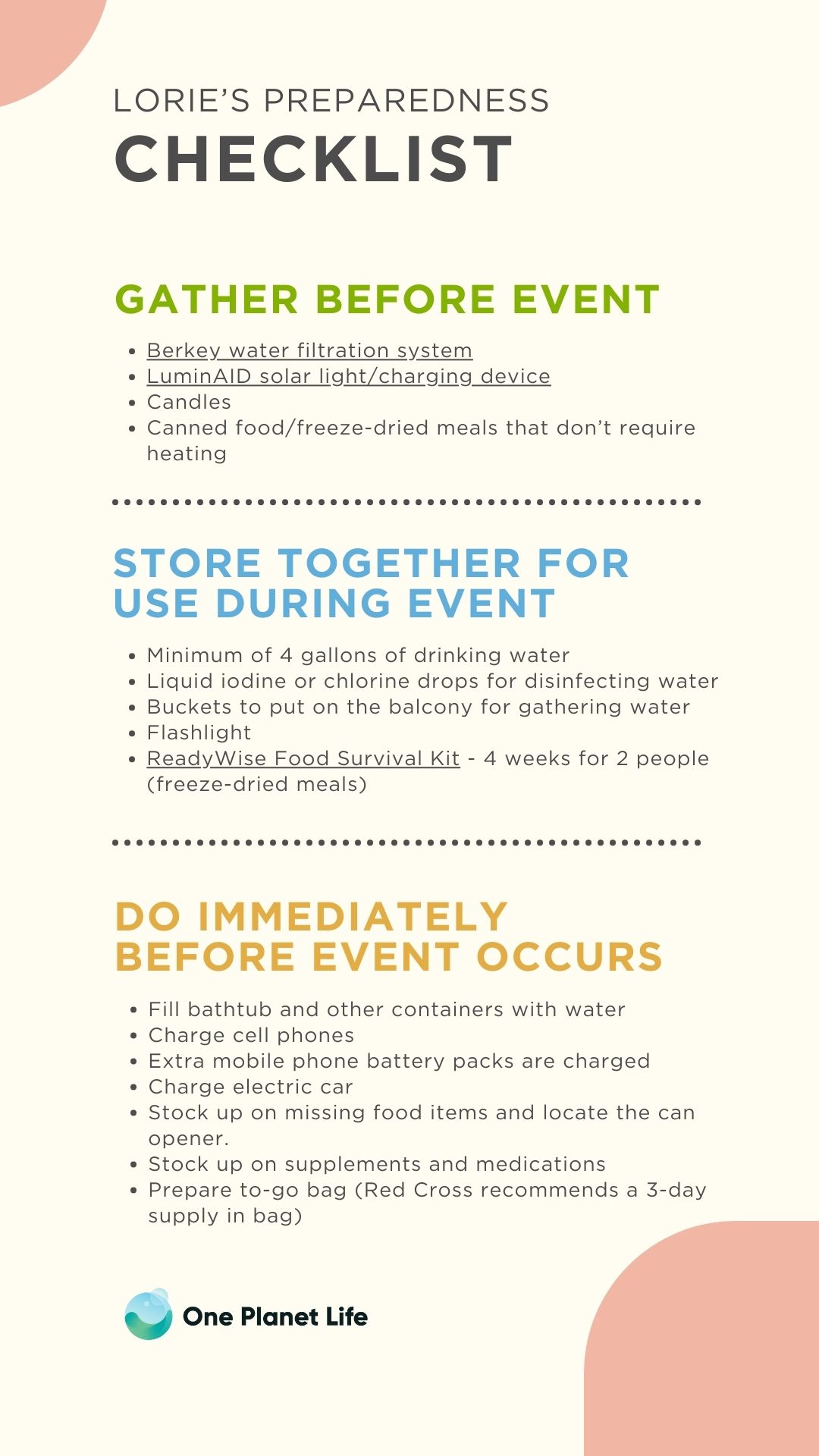
Jeffrey Malcolm and his family are most concerned with rising carbon emissions and the effect it’s having on temperatures. “This past summer, my power bill grew 27%-33% compared to last summer,” he notes. He tries to combat rising prices by increasing his thermostat to 78 degrees and using fans to stay cool. He’s hoping these measures will help save the life of his AC units, which are expensive to repair and replace.
When threatened by tornadoes, Malcolm and his family take shelter in the basement and use a mattress to protect themselves from any debris. The family has a survival plan that they execute when a threat is imminent.
“Over the past 20 years I have seen the seasons shorten with warmer winter months and hotter summer months. We have had more dramatic weather events that ultimately led us to purchase a generator to deal with power outages.”
Jody Goldfarb worries that rising temperatures and oceans will lead to a significant and irreversible decline in ecosystems. Major weather events are stressful, she admits. “I am often fearful of the impact we have made on Earth and how it has amplified normal weather patterns, like trees falling, creeks flooding, etc.” But she worries most about how melting ice caps, rising waters, and other long-range climate concerns will impact future generations.
Goldfarb and her family are acutely aware that humanity’s carbon emissions are responsible for Earth’s gradual heating. By focusing on her own carbon impact, she feels she can make a difference. Goldfarb shops exclusively from local organic farmers markets and uses reusable containers to avoid single-use plastic. She has noticed the amount of garbage the family produces has dramatically lessened after they started composting their food scraps. She knows her contributions are small, but she knows they make a difference.
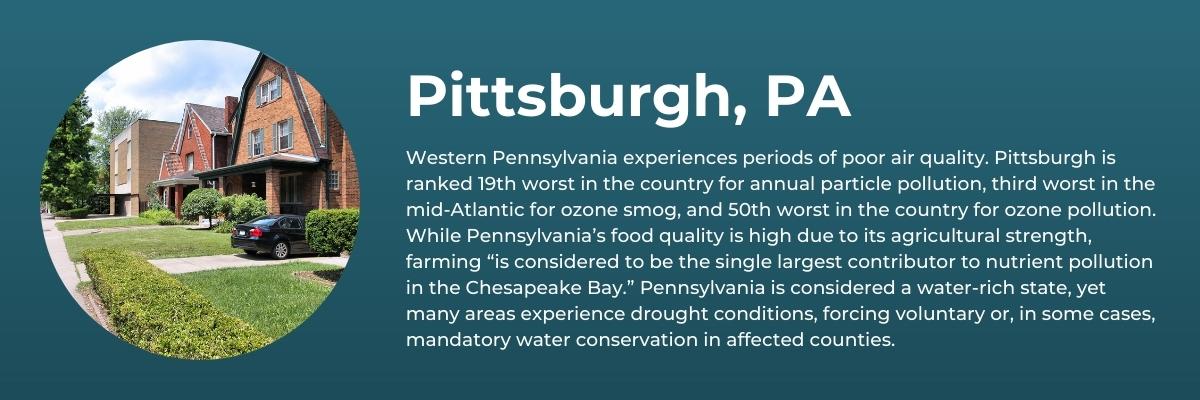
“I am most worried about the decrease in insects, bees, monarch butterflies, birds, macro-invertebrates, and wildlife. We need all of these in our biodiverse world to help pollinate plants. Without them, our food production will continue to decrease, bringing more unrest and division as our increasing global population experiences food insecurity.”
Yvonne Dwyer has a passion for the natural world and an innate curiosity about how we are globally interconnected. She’s noticed that weather conditions in Pittsburgh have become more extreme. Unfortunately, changes in weather patterns have also affected some of the outdoor activities she loves. Skiing is less enjoyable without natural snow, and extreme heat makes gardening and biking difficult. Flooding causes trail erosion and prohibits hiking. The Dwyers are avid campers, and are fortunate to have outdoor gear that is effective both in the wilderness and in emergency situations. Helpful tools like water filters, solar powered light sources/chargers, and first aid kits ensure that they are prepared no matter what Mother Nature throws at them.
Dwyer and her family combat waste and contribute to a circular economy by being conscious consumers. “Eliminating waste has become a concern,” she notes. “I reduce, reuse, repurpose, and compost as much as I can.” She shops her closet, frequents second hand stores, and repairs clothing when possible. Dwyer also grows her own produce, shops farmers markets and food co-ops, and freezes, cans, and dries produce to ensure her family eats locally all year long. She composts weekly and also saves heirloom seeds from year to year to plant herself or share with her community. She is an active member of the Hollow Oak Land Trust and is passionate about conserving, preserving, and protecting our natural areas and educating those about the effects of our warming climate.
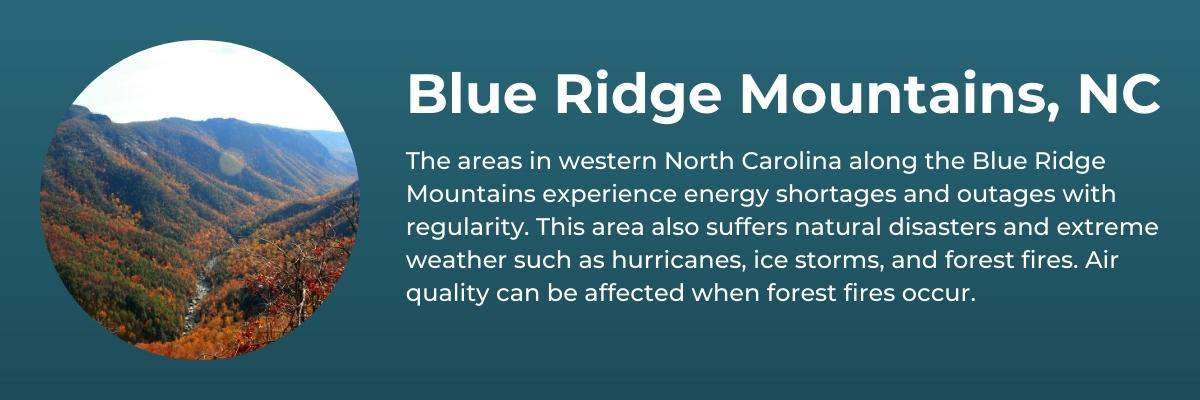
“I’m most concerned about extreme weather…bad storms, ice and snow, forest fires. We are somewhat remote and will certainly not get priority on emergency services. I think forest fires are the scariest for me, although recently hurricanes have been added to the list. We just went through Hurricane Helene with the eye passing right over us.”
Harriet Cook has definitely noticed a decline in biodiversity since moving to the Blue Ridge Mountains 12 years ago. There’s fewer birds, butterflies, and varieties of species around her. Mushrooms, which were once plentiful, are not making an appearance due to heat and drought. Air quality in the mountains is usually good, unless a forest fire threatens the area (which has happened three times since the Cooks arrived).
Cook and her family experience frequent energy outages, which compelled them to install a whole house generator to power the well and maintain electrical connections. They are conscious of their water consumption, especially after their first well ran dry and a new one needed to be drilled. The well infrastructure must be maintained regularly and has several failure points, so Cook keeps a rain barrel and extra water on hand for drinking, dishes, and bathroom use. The Cooks are also extremely waste conscious out of necessity. “We don’t have trash or recycling pick up, so we have to carry it to the county provided facilities. So we think twice about throwing things away!” She has been able to implement many of OPL’s Joyful Changes to help eliminate waste.
Cook most recently experienced the devastating effects of hurricanes when the eye of Hurricane Helene passed directly over the Blue Ridge Mountains. Thankfully, they were able to weather the storm with the help of the family’s whole-house generator, their rain barrel/water reservoir, a full propane tank, a stocked pantry, and a chainsaw.
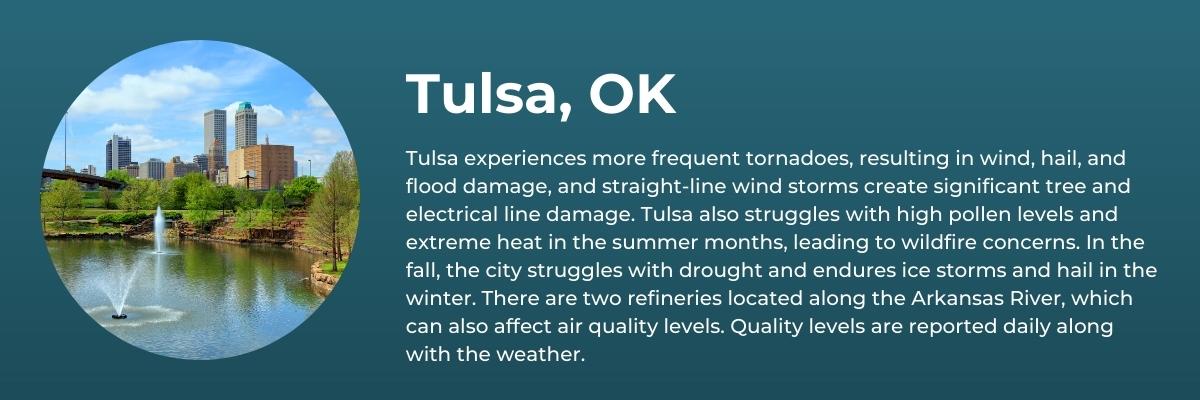
“I stay aware of changes and weather forecasts. I don’t take [natural disasters] lightly. I no longer believe ‘it can’t happen here.’ I want to be prepared and want my family to be prepared.”
Amy Bates feels it’s important to stay prepared, especially in Tulsa where tornadoes and straight-line wind storms are common. In her daily life, her family uses high-quality indoor air purifiers and filters her water to remove pollutants. They keep candles, flashlights, batteries, and important documents in the family’s “safest space” in the house. She keeps cash on hand. The family has designated shelter areas so family members know how to find them during a weather event. The family talks regularly about their emergency preparedness plan.
For Christmas, she gifted survival supplies to her three adult children, which included a fire blanket, a highly compact sleeping bag, a protective cover/tent, a filtering drinking straw, and a solar camping lantern and charger. “While it may seem like morbid gifts, it is no secret that each of us feels stressed and concerned about environmental happenings that are out of our control.” When asked if preparing makes her feel safer, Bates said, “Yes and no. It brings the concern to the surface, but there is absolutely no gain or win in denying what can’t be denied.”
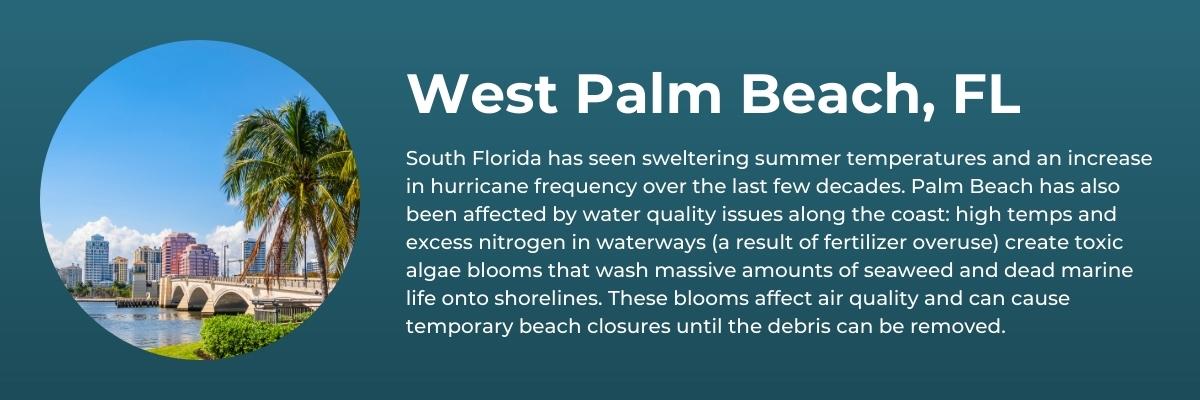
“In South Florida, we’re most concerned about hurricanes, which typically occur between May and November. I am also concerned by water quality (we see the effects of algae blooms along our coastlines) and electricity outages, because we depend so heavily on technology. It’s difficult to live down here without AC!”
Kristina Shane worries about the many effects of climate change, but she is acutely most affected by hurricanes, which generally form between May and November. In a hurricane event, having clean water and food to outlast the storm and any lasting electrical outages thereafter is important. Shane utilizes a 2-part strategy to prepare. At the start of hurricane season, she will generally amass larger quantities of shelf-stable and ready-to-eat foods in her pantry. She also ensures the family has adequate propane and gas to fuel the generator that can power one of her AC units and a few select appliances. Once a hurricane is imminent, Shane will fill several reusable, collapsible 5-gallon water jugs with drinking water, make one last grocery run, and then start putting up hurricane shutters and securing all outdoor furniture and plants.
Shane is thankful that she has the tools she needs to weather a hurricane successfully. “We try to focus on preparing for the situations that are most likely, and then not spending too much additional time thinking about it until a threat starts to materialize.”
Gear Up for Any Weather Event
Check out our blog for a helpful list of gear to help you weather any natural climate event.

